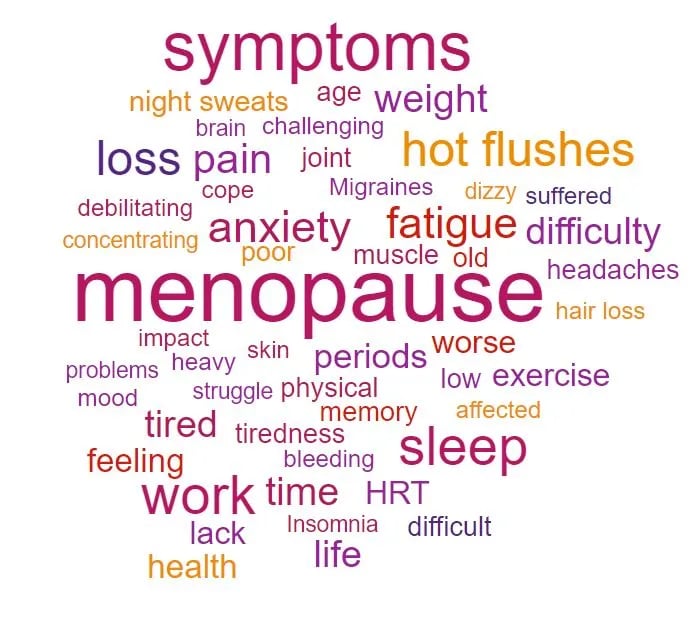Understanding Menopause: A Comprehensive Guide for Women
A complete guide to menopause: symptoms, causes, natural remedies, hormone therapy, and lifestyle strategies to help women navigate this life stage with confidence.
NUTRITION & LIFESTYLE


Introduction
Menopause is one of the most significant transitions in a woman’s life, yet it’s often surrounded by confusion, myths, and silence. For many women, this stage can bring both relief and challenges—ending the possibility of pregnancy, but also triggering symptoms like hot flashes, mood swings, and sleep disturbances.
This guide is designed to give you a clear, evidence-based overview of menopause: what it is, when it happens, the common symptoms, and the strategies—both natural and medical—that can help you navigate it with confidence.
What Exactly Is Menopause?
The Definition
Medically, menopause is confirmed when a woman has gone 12 consecutive months without a menstrual period, marking the end of her reproductive years.
It’s not an illness—it’s a natural biological transition.
The Timeline
Menopause usually unfolds in three phases:
Perimenopause (40s–50s): Hormone levels fluctuate, periods become irregular, symptoms begin.
Menopause (average age: 51): Periods stop completely for 12 months.
Postmenopause: The years after menopause, when symptoms may ease but health risks like osteoporosis can increase.
Common Symptoms of Menopause
While every woman’s experience is unique, the most frequently reported symptoms include:
Hot flashes & night sweats
Sleep problems
Mood swings, anxiety, or depression
Vaginal dryness & reduced libido
Irregular or heavy periods
Brain fog or difficulty concentrating
Weight gain, especially around the abdomen
Joint pain and fatigue
Not every woman will experience all of these symptoms—and their intensity can vary from mild to severe.
Why Does Menopause Happen?
The root cause is a decline in estrogen and progesterone production as the ovaries slow down. These hormones regulate not only fertility, but also:
Body temperature
Bone health
Heart and blood vessels
Skin and hair
Mood and brain function
When hormone levels drop, these systems feel the impact.
Managing Menopause Naturally
Many women prefer to start with natural approaches before considering medical treatment. These include:
Lifestyle Adjustments
Diet: Prioritize calcium, vitamin D, and phytoestrogens (soy, flaxseeds, legumes).
Exercise: Strength training + cardio = bone and heart protection.
Sleep hygiene: Cool bedroom, consistent schedule, relaxation before bed.
Stress management: Meditation, yoga, deep breathing.
Herbal & Alternative Remedies
Sage: Known to reduce hot flashes.
Black Cohosh: Can ease vasomotor symptoms.
Red Clover & Flaxseed: Contain phytoestrogens that may support balance.
⚠️ Always consult a healthcare professional before starting supplements.
Medical Options for Menopause
Hormone Replacement Therapy (HRT)
Benefits: Highly effective for hot flashes, night sweats, and bone protection.
Risks: Not suitable for everyone—especially women with a history of hormone-sensitive cancers, clotting disorders, or certain health risks.
Non-Hormonal Medications
Certain antidepressants (SSRIs, SNRIs) can reduce hot flashes.
Vaginal moisturizers and lubricants help with dryness.
Long-Term Health After Menopause
Even after symptoms ease, the drop in estrogen affects long-term health. Key considerations include:
Bone health: Higher risk of osteoporosis → calcium, vitamin D, exercise, bone scans.
Heart health: Estrogen’s protective effect wanes → monitor blood pressure, cholesterol.
Cognitive health: Some women experience memory lapses—healthy lifestyle helps reduce risks.
Myths & Facts About Menopause
❌ Myth: Menopause happens suddenly at age 50.
✅ Fact: It’s a gradual process that can span 5–10 years.❌ Myth: All women suffer badly.
✅ Fact: Some women experience very mild symptoms.❌ Myth: Nothing can be done about menopause.
✅ Fact: Many effective treatments exist—both natural and medical.
Practical Tips to Navigate Menopause
Track your symptoms → Keep a diary to spot patterns.
Build a support system → Talk to friends, join communities, share experiences.
Consult a menopause specialist → Not all doctors are trained in this area.
Stay informed → Reliable resources empower you to make the best decisions.
Conclusion: Embracing the Transition
Menopause is not the end of vitality—it’s the beginning of a new phase of life. With the right knowledge, support, and strategies, you can manage symptoms effectively and protect your long-term health.
Your body is evolving, and while there may be challenges, there is also freedom, wisdom, and strength to be found in this stage.
💬 How are you experiencing menopause right now? Share your journey in the comments—your voice could make another woman feel less alone.
⚠️ Medical Disclaimer: This article is for informational purposes only. It does not replace professional medical advice, diagnosis, or treatment. Always seek the guidance of your doctor before making health-related decisions.
